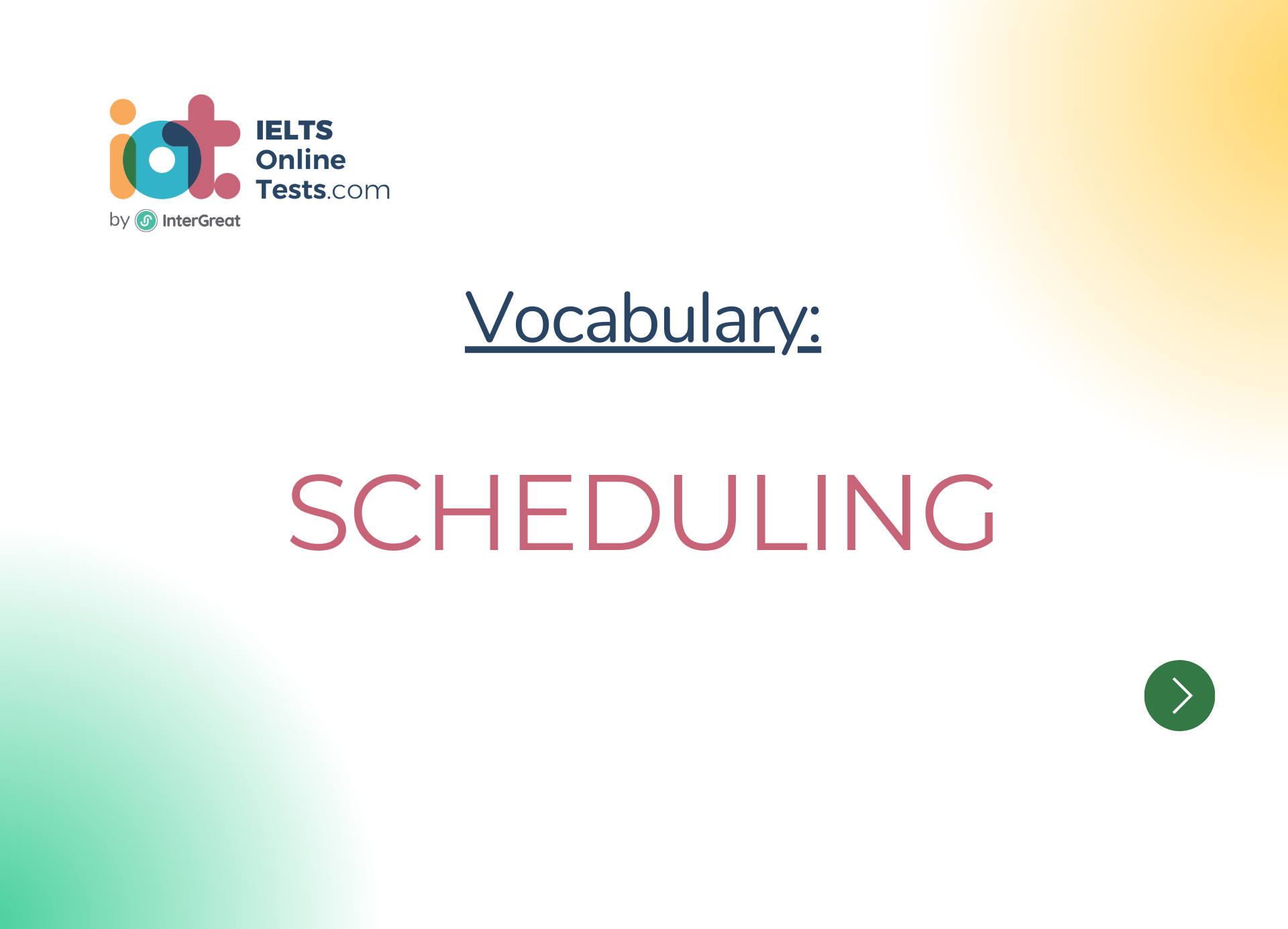
Scheduling
Here's a lesson on vocabulary related to "Scheduling" for the IELTS band score 3.0-4.5:
I. Scheduling Terms:
Schedule: A plan or timetable of events or activities.
Appointment: A fixed time set for a meeting or a task.
Agenda: A list of items to be discussed or accomplished in a meeting or event.
Deadline: The final date or time by which something must be completed.
Reschedule: To change the timing or date of an event or activity.
II. Time Expressions:
Morning: The period of time from early hours until noon.
Afternoon: The period of time from noon until evening.
Evening: The period of time from late afternoon until night.
Weekend: The days of Saturday and Sunday, typically regarded as a time for rest or leisure.
Business hours: The hours during which a business or office is open.
III. Types of Schedules:
Daily schedule: A plan of activities or tasks for a single day.
Weekly schedule: A plan of activities or tasks for a whole week.
Monthly schedule: A plan of activities or tasks for an entire month.
Class schedule: A timetable of classes or courses for students.
Work schedule: A plan of work hours and shifts for employees.
IV. Scheduling Verbs:
Plan: To arrange or decide on a schedule or course of action.
Organize: To arrange or set up in a systematic order.
Prioritize: To give higher importance or preference to certain tasks.
Cancel: To call off or eliminate an event or appointment.
Reschedule: To change the timing or date of an event or activity.
V. Time Management:
Time management: The practice of planning and controlling time effectively.
Punctuality: Being on time or arriving at the scheduled time.
Productivity: The ability to accomplish tasks efficiently and effectively within a given time frame.
VI. Scheduling Tools:
Calendar: A tool used to mark and organize dates, appointments, and events.
Planner: A physical or digital tool used to plan and track tasks and schedules.
Reminder: A notification or alert that serves as a prompt for a scheduled event or task.
Remember to practice using these vocabulary words in sentences and conversations to improve your understanding and fluency in English.




